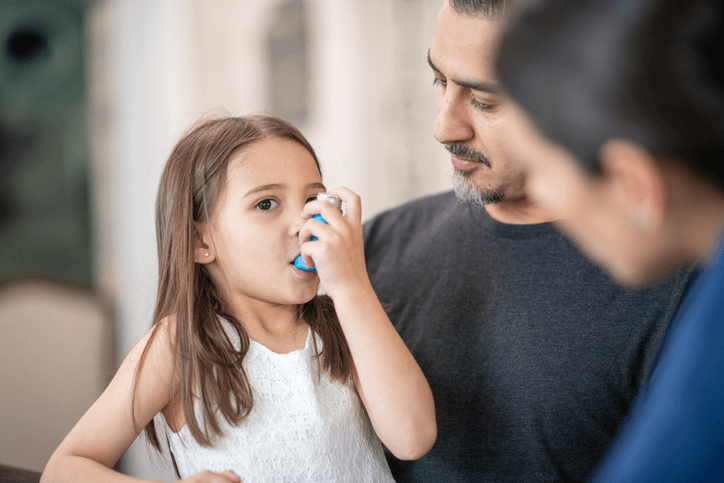Asthma in Children Aged One to Five: Understanding Symptoms and Management

Could my child have asthma if they’re wheezing?
Not necessarily. Wheezing is relatively common among young children, with about one-third experiencing at least one episode by the age of three. These episodes often occur when they have a virus, such as a cold or throat infection. Many children outgrow these viral-related symptoms by the time they start school.
Your child might be more likely to have asthma if:
- You or your partner smokes, or you smoked during pregnancy.
- There is a family history of asthma or other allergic conditions, such as eczema.
- Your child has allergies, such as eczema, food allergies, or hay fever.
- Your child was born with a low birth weight or prematurely.
- Your child has had bronchitis in the past.
What are the symptoms of asthma?
Asthma occurs when the airways in your child’s lungs become inflamed, making it difficult for them to breathe. Although asthma is a chronic condition, symptoms can come and go, and medication can provide relief.
The primary symptoms of asthma include:
- A persistent cough.
- Shortness of breath and tightness in the chest.
- Wheezing, which may sound high-pitched like a whistle or squeak.
These symptoms may be more indicative of asthma if they are worse late at night or early in the morning, or if they are triggered by exercise, cold air, allergens, or strong emotions.
Diagnosing asthma in young children can be challenging since standard lung function tests are not suitable for those under five. In such cases, doctors may use an approach called “watchful waiting,” where they monitor your child over time to assess symptom progression. Alternatively, they might prescribe medication for a short period to see if it alleviates symptoms, which could indicate asthma if improvements occur.
What triggers asthma?
The exact cause of asthma is unclear, but symptoms often occur in response to specific triggers, including:
- Respiratory infections like colds or flu.
- Common allergens such as pollen, dust mites, and animal dander.
- Certain medications, including non-steroidal anti-inflammatories (NSAIDs) like ibuprofen.
- Environmental factors like cold or hot humid air and sudden temperature changes.
- Emotional factors such as stress or laughter.
- Physical exertion or exercise.
- Exposure to smoke or air pollution.
- Mold and damp environments.
When exposed to triggers, the lungs release chemicals that cause the airways to swell, making it difficult for your child to breathe. However, asthma symptoms may not always have an obvious trigger, and those with severe asthma might struggle with breathing difficulties more frequently.
Why are asthma rates high in the UK?
The UK has one of the highest rates of childhood asthma globally, affecting about 15% of children. While the exact reasons are not fully understood, environmental factors might play a role. Some experts believe that early exposure to germs can help develop a healthy immune system. Since most UK residents grow up in clean environments, some children’s immune systems might overreact to harmless substances, leading to asthma and other allergies.
Interestingly, studies indicate that children growing up on farms, exposed to a variety of germs, have lower asthma rates. Research even suggests that having a dog in the house might reduce asthma risk, although more studies are needed for conclusive evidence.
Ongoing research aims to better understand asthma and develop improved treatments. If you and your child wish to participate, you can explore ongoing studies recruiting new patients by searching “asthma” on the NHS clinical trials website.
Can asthma be cured?
Asthma is a chronic condition with no known cure. However, you can manage your child’s asthma effectively through medications and minimizing exposure to triggers when possible. Asthma shouldn’t prevent your child from enjoying exercise or leading a healthy lifestyle. Your doctor or asthma nurse will collaborate with you to determine the best treatment and management strategies for your child.
The encouraging news is that many children outgrow asthma or experience milder symptoms as they grow older, especially if symptoms began before the age of two.





